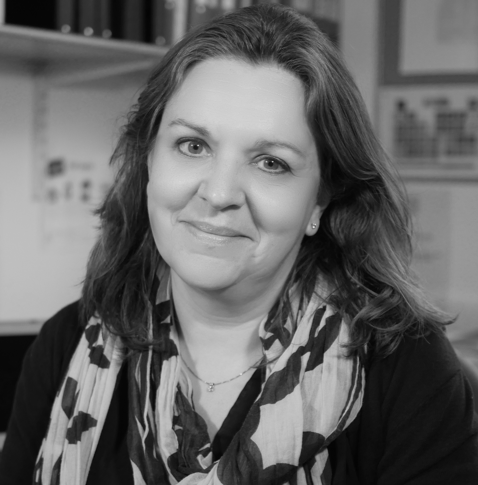
I was delighted just under a year ago to find out that I had been awarded an Advance HE - National Teaching Fellowship - I was hugely pleased and proud! Consequently, I felt a strong responsibility to work with, champion and promote colleagues who are innovating in relation to teaching and learning in the academy – this is vital for pushing boundaries, supporting professional learning and fostering teaching excellence. So, I was delighted to have the opportunity to co-present with three colleagues at the Teaching and Learning Conference 2019.
Engaging the ‘hard to reach’
Firstly, with Heather Pennington, we ran a workshop exploring how to engage ‘hard to reach’ colleagues. Heather has held a variety of teaching and leadership roles in the FH and HE sectors and is strongly committed to supporting the professional learning of colleagues in developing their teaching practices and pedagogies.
Our focus was situated within the context of competing priorities and increasingly performative agendas in higher education. This can lead to some neglecting deep consideration of their teaching practices and pedagogies. We argued that without flexible and collegiate but rigorous approaches, the opportunities and affordances of reviewing and refining pedagogic practice can be lost. We discussed the need to show vulnerability and not pretend we have it all worked out…
We put forward an expansive articulation of peer review and how it can be harnessed to support critical reflection. We suggested that when combined and nested within practices associated with ‘educative mentoring’ (Langdon and Ward, 2015; Daly and Milton, 2017) it can foster cultures which challenge and question existing norms and established orthodoxies (Flores and Day, 2006) in a safe, supportive and reciprocally beneficial way. Shared professional learning that embraces uncertainty is at the heart of this approach.
Click here to view Teaching Excellence and Embracing Innovative Teaching Practices
Inclusive assessment practices – it matters!
Secondly, Dr Ceri Morris and I considered the design and delivery of assessment and feedback, discussing how to ensure inclusive and supportive practices.
Ceri is a lecturer and researcher in inclusive pedagogy in post-compulsory education and a passionate advocate for equitable HE provision for all students, including those with additional learning needs and disabilities.
We argued that the inescapably high stakes nature of assessment (Boud, 1995) in HE makes it imperative that we strive to consider the implications and impact of assessment and feedback for all our students.
We discussed Ceri’s recent research, which suggests that many students, particularly those with additional learning needs (ALN), are dissatisfied with traditional assessment and feedback mechanisms. In addition, students with ALN remain unconvinced that their needs have been acknowledged in design, marking and feedback. All student participants were overwhelmingly supportive of innovative assessment processes, such as the provision of choice in mode of delivery. By contrast, staff participants in the research were considerably less supportive. Further work is needed to support colleagues to design equitable, flexible assessment and feedback processes which meet the needs of all.
Click here to view Inclusive Assessment Practices
Learning to teach: Modelling creative and fun approaches to engaging students
Finally, with Dr Michael Willett, we considered the implications of postgraduate tutors making up a large proportion of frontline HE teaching staff. Michael has worked in higher education for the last 10 years, and currently leads the Advance-HE Accredited ‘Learning to Teach’ programme at Cardiff University, which supports postgraduate tutors in developing their learning and teaching practices.
We discussed some innovative approaches that could be utilised to inspire, engage and support this vital workforce in their professional learning. We focused on how Gedalof’s (2005) ‘Quescussion’ (a discussion activity consisting entirely of questions) could be used as an engaging, interactive and student-centred way to lead small-group teaching sessions; one which promotes equality and fosters the development of critical thinking skills. And, we argued that the approach could be adopted across disciplines and levels of study because of the very nature of what it is trying to achieve – criticality, a questioning stance, independence and autonomy.
Click to view Learning to Teach: making teacher training accessible and fun for postgraduate tutors
I feel really privileged to have worked with these colleagues at the conference - what is clear to me is how much we benefit when we collaborate and learn together – at a time when HE colleagues often feel more and more isolated. Engaging in mutual endeavour, supporting each other and learning together is good for us because everyone benefits. So, I wonder how we can engender a collective responsibility to raise the profile of engaging in professional learning focused on pedagogy and practice? How we can foster a stance where this is an entitlement and is recognised and valued? How can we reconceptualise our practice as something to refine and improve, as an endeavour that is never finished and can always be enhanced? We have a responsibility to ourselves and our learners to do this, if for no other reason than to provide opportunities to make education across all disciplines accessible to all and to inspire and ignite imaginations.
How good are you at promoting and celebrating the learning and teaching work of your colleagues?
References
Boud, D. (1995) Assessment and learning: contradictory or complementary? In: Knight. P (Ed.) Assessment for Learning in Higher Education. London: Kogan Page, pp. 35-48.
Daly, C. and Milton, E. (2017). “External mentoring for new teachers: mentor learning for a change agenda”. International journal of mentoring and coaching in education, 6 (3), 178–195.
Flores, M. and Day, C. (2006), “Contexts which shape and reshape new teachers’ identities: a multi-perspective study”, Teacher and Teacher Education, No. 2, pp. 219-232.
Gedalof, A. J. (2005) “Question-and Discussion-Based Exercises”. In Gedalof, A. J., Teaching Poetry: A Handbook of Exercises for Large and Small Classes. New York and London: W W Norton & Company, Inc
Langdon, F. and Ward, L. (2015), “Educative mentoring: a way forward”, International Journal of Mentoring and Coaching in Education, 4 (4), pp. 240-254.